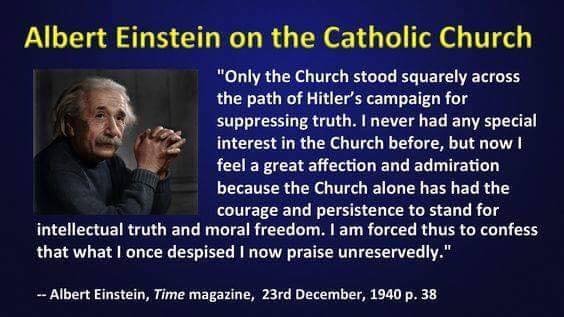Some history of the deviant, rebellious, Christian religious orders and churches that emerged in the 2nd century AD, and deliberately defied scripture regarding the evangelization of nations of the 1st Century. It was set to take on a new human rebellious religious force of human conquest, using, with God and his scripture on their side, as their excuse, as they made the claim, over the next centuries.
The Roman Catholic church primarily focused on establishing and consolidating its religious-political and economic influence and presence in the Mediterranean world, as it concurrently considered itself as an instrument in God’s hands to prepare all people for the final encounter with the Lord, in Parousia, or His second coming in glory. So, they established their church as the primary means of possessing the Kingdom of God on earth, and with the installation of sinful men or hierarchy of clergy, and even popes as Christ representatives or vicars of Christ on earth.
The RCC developed an extensive evangelist program over the centuries, where the gospel and the RCC of their own Kingdom inheritance, forced many to capitulate to it under the threat of even death.
This type of evangelism went on for over 1600 years. They spread their own Kingdom church on earth and caused so much death and despair in the nations in its wake.
One notable example is the forced conversions of converted Khazarian 'Jews' and Muslims during the Spanish Inquisition, which took place from the 15th to the 17th centuries. During this period, many of these types of Jews and Muslims were forced to convert to Catholicism, often under the threat of persecution or violence. This was particularly true in Spain and Portugal, where the Inquisition was most active.
Another example is the forced conversions of pagans and heretics during the Middle Ages. The Church often used coercion and force to convert people to Catholicism, particularly in areas where the Church was seeking to expand its influence. This was often done through the use of missionaries, who would travel to distant lands and convert people to Catholicism through a combination of persuasion, coercion, and force.
There have also been instances where the Church has used force to convert people to Catholicism in more recent times. For example, during the colonial era, many indigenous peoples were forced to convert to Catholicism by European colonizers. Similarly, during the 19th and 20th centuries, many people were forced to convert to Catholicism in areas where the Church was seeking to expand its influence and political clout.
Other ‘Christian’ movements, such as the Protestant Reformation, emphasized the need for individual spiritual renewal and the spread of Christianity to new regions and cultures. It did however do the same type of coercive measures and methods of evangelism as the RCC used, although in a ‘kinder and more gentle’ way.
Incidentally, the ‘Great Commission’ (GC) term was coined in 17th century and turned the entire view of scripture and Jesus’ words on its head completely. On the heels of the age of discovery, evangelizing missionaries capitalized on their national government’s political-economic and miliary prowess embarking in seagoing adventures on the high seas, as they plundered and invaded other countries, of their precious resources and wealth and destroying many cultures and lifestyles.
Baron Justinian von Welz, a 17th-century Lutheran nobleman, is believed to have coined the term “Great Commission” and argued that the words in Matthew 28 meant that all Christians were required to spread the faith, not just Jesus’ closest disciples and those present on the Day of Pentecost. This suggests that Welz viewed the Great Commission as an ongoing commandment for all Christians, rather than a one-time event. And this is dead wrong! It is one thing to share the gospel with someone for their salvation, and it’s another to mimic and attempt to replicate in a selfish way, what was performed in the 1st century for a deliberate design purpose of God.
Additionally, Hudson Taylor, an Englishman who founded the China Inland Mission in 1866, is believed to have used the idea of the Great Commission to justify Christian missionary efforts. Taylor’s quote, “The Great Commission is not an option to be considered, but it is a command to be obeyed,” implies that he viewed the Great Commission as a continuous obligation for Christians to spread the faith.
Today, in the 21st century, the reason for evangelism beside its nearly conjured up 2000 year standing extra-scriptural view that the world still needs evangelized with the gospel, has lost its appeal and purpose in true meaning. So has this so-called ‘great commission’ finally ended?
Is there still a sense of urgency for spreading the gospels to every nation, again, and again for every generation, as many sense the ‘return’ of Christ, very soon? I think this is futile, in attempt to please God through our own collective human efforts. The Spirit of holiness, within us, each and every believer, act as an instrument of God’s purpose that causes each one, personally, to lead others to the gospel and salvation, and not through our own collective national, community or denominational will and pride.
When Christ ‘returns’ it will be in might and for destruction, as it is the time of harvesting his elect out of this earth into immortality, into the kingdom of his Father. There shall be no special rewards for any self-induced efforts in order to please God, through false non-spirit driven methods and works. These works will surely be 'burned up.'
‘Churches’ need to re-evaluate their scripture-based missions again, and if they are truly led by the Spirit or rather themselves, for other selfish benefits and not for the true work of Christ. And the great commission ended, with that particular age, of the words spoken by Christ, after he said 'it is finished.' Done now, for over 2000 years.


